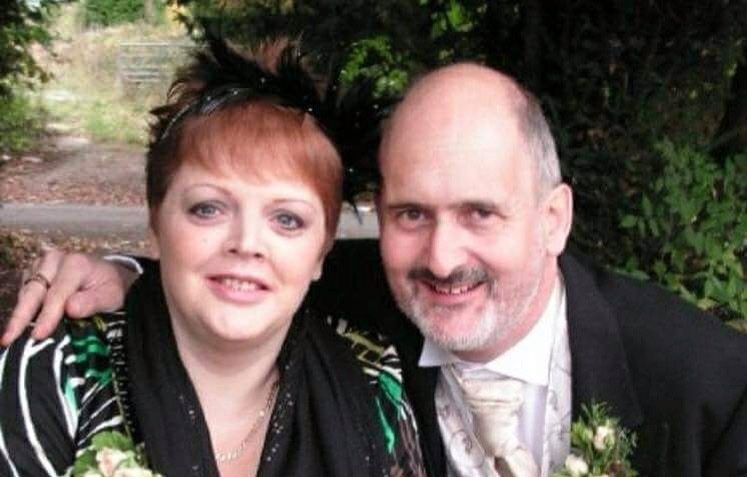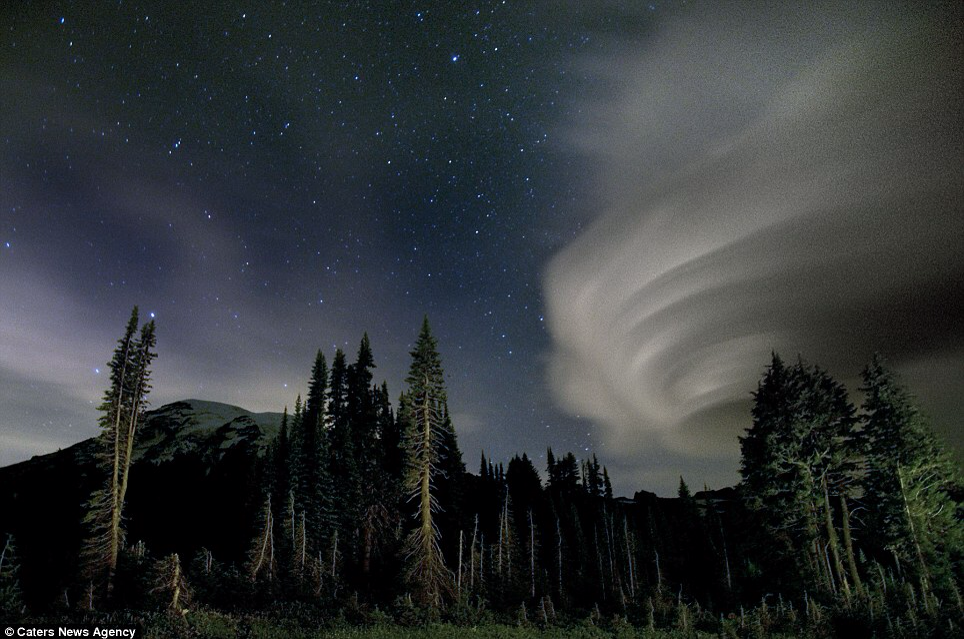|
I had the enormous privilege of working with Steven Ditmyer in London in 2015, and I am looking forward very much to having an opportunity to be taught by him again before too long. A Student of the great Sanford Meisner himself, Steven teaches throughout the World and is one of the pre-eminent Tutors of the 'Meisner Technique' today. He is teaching in London this July, 2017 and I cannot recommend him highly enough...
0 Comments
On This Day, June 26, 1982; the woman in this picture stood beside me in St. Augustine's Church, Broxbourne, and said: "I Will"...
Back then, I was young, and in love. Today, I am a little older, and in love. But I am still in love. Yes, thirty-five years, three children and five grandchildren later, and I am still in love with that idealistic young woman who wore my band of gold for the first time all those years ago... Happy Coral Wedding Anniversary, Karen. You are, and always will be, my reason for living. x. "I would like to say to people, open your eyes and find beauty where you normally don't expect it."
Jean Paul Gaultier. Today I attended the first session of 'Creating A Great Performance', the fourth workshop I have done @ScreenActingSkills whom I have recommended many times as an outstanding training resource in the art of acting for the camera. One of the issues which repeatedly comes up in the workshops, and was discussed again today, is volume. Many actors who have been trained in, and worked on stage, are immediately thrown when they find themselves in front of a lense; and even I, who favours working in front of the camera and has done so many times, still gets told to tone it down and watch my volume. When you act for screen you can rest assured that the technology will see, AND HEAR, everything. This can initially be confusing, and perhaps even nerve-wracking for the Actor or Actress who is used to delivering their lines with the amplification necessary to reach the back row of the gallery. However, it also presents great possibilities for artistic expression once the performer has mastered the art. Quite simply, cameras open up a new world of possibilities which are just not possible in theatre.
Ever since my childhood, I have had a strange desire, which I may yet fulfil, to play the Arch-Villain in a pantomime! The prospect of coming on, stage-left, to a crescendo of boos and jeers from Mums and Dads and their little darlings fills me with joy! (I am a bit weird like that!). But on a serious note, I am drawn to villains, and one thing I have always noticed is that the most terrifying baddies are not the ones who shout and scream, but those who exude absolute power, and do so with a softly spoken voice. Think of Al Pacino's character in: The Godfather, when he confronts Carlo over his involvement in Sonny's death. Or another one, a great favourite of mine, Ricardo Montalban's Khan in: Star Trek II - The Wrath of Khan. His first scene where he slowly reveals himself and then calmly, and in absolute control says: "I don't know you. But you. I never forget a face. Mister... Chekov, isn't it? I never thought to see your face again." And whoever the character is, the entire interpretation of a scene can be changed by different levels of volume. As we were told at the workshop today, a low or dropping volume can 'draw an audience in', captivating them in the story in a way that a loud delivery may not. That said, another important factor in the use of volume, and one which I asked about at today's workshop, is how the variance of volume can play a crucial part in making a powerful scene. I would ask you to look at the clip above featuring my favourite Actor, Denzel Washington, and the marvellous Gene Hackman in the late Tony Scott's: Crimson Tide. This is a shortened clip and I would recommend watching the longer cut, or best of all, the movie! These two naval officers are discussing whether to carry out the orders they have, to use atomic weapons. Or whether it might be an idea to find out what this other message says first. Quite apart from the wonderful tension created by these two Actors as they work off each other, consider the changes in volume. How it starts softly, with the Captain trying to convince his Executive Officer without the men overhearing. But then he blows and reminds his subordinate who the Captain of the boat is. Then, as he loses control of the situation, the volume falls back again. Of course we are looking at wonderful Actors, a wonderful Director, a wonderful Director Of Photography and undoubtedly a blinding sound man to work with a furious exchange between two characters speaking over each other. But the principle is universal. And the importance of volume is one of the most valuable things I have learned at these fantastic workshops... #ShowSomeSAS #acting “Our job as Actors is to give the Editor something he can work with.”
I came to Acting at the tender age of fifty-two, when I read an article in my local newspaper saying that a local stalwart of the Amateur Dramatic scene was going to run adult evening classes for would-be Thespians. As long as I could remember I had always loved the movies, always been inspired by the great Actors and Actresses of the silver screen, and always had that little inkling that perhaps I could be an Actor myself. And so, the newspaper article was for me, one of those ‘now or never’ moments in life. I signed up. I was cast in a good role in an amateur production, and above all I was fired with a sense that I really did want to do this, and do it to the very best of my ability. I have since studied seven courses at the Royal Central School of Speech and Drama in London, have fallen in love with the Meisner Technique, and have worked with some truly wonderful Tutors who have given me amazing instruction and advice at Central and elsewhere. And yet, of all my training, the one piece of advice which I have found the most profound was given to me by an Actor of some forty years experience. His name is Colin David Reese. One thing I realized from my time at Central, and at Meisner classes to some extent, was that much of the drama training in the United Kingdom is still geared towards working on stage. But my first love would always be, perhaps inevitably, acting for screen; and I am never more happy than when I am in front of a camera. So I was absolutely delighted to discover the Screen Acting Skills (SAS) workshops run by Colin, and from behind the camera by his brilliant associate, Ruggero Dalla Santa. The piece of advice which Colin gives his Students, and which I always have at the front of my mind on set is: “Our job as Actors is to give the Editor something he can work with.” And that really is the Holy Grail for the screen Actor, because it defines the difference between the final cut, and the cutting room floor. The Screen Acting Skills workshops are designed around a simple premise: You have been cast in a cameo role on a big production. You are way down on the list, reading your book on the edge of set when you get the call. This is it. How do you make sure you shine, and that your thirty-five seconds of screen time survives the apocalypse of post-production to appear in the final cut? These are the questions which are dealt with at the SAS workshops. Colin brings his vast experience to bear in teaching those little things that define a mediocre performance from a memorable one. Ruggero will show you what you did on screen, highlighting for you what an Editor can, and cannot use and why. Make no mistake, these are not easy workshops. Colin will push you and test you, and he does a very good portrayal of the demanding Director! And you will find many of your ideas and previous training challenged when you hear: “Action”. I will never forget how Sanford Meisner’s injunction to “work off your scene partner”, and “don't do anything until something happens to make you do it” became very interesting when my sight-point was the top of a camera tripod, and I was delivering my lines in response to a fellow Student reading deadpan from the script! I am looking forward with mounting excitement to attending the advanced SAS workshop this weekend, (my fourth one); and to anyone who is interested in the very specific skills required when performing for camera, I genuinely cannot recommend the SAS workshops highly enough. I can assure you that you would be very hard pressed to find better screen training anywhere... |
Archives
May 2023
|



 RSS Feed
RSS Feed